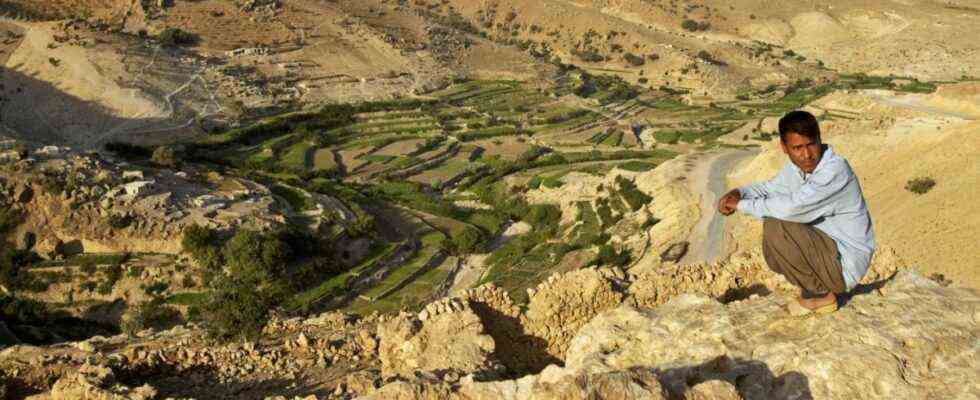Anyone reading Ronya Othmann’s first volume of poetry is roaming through a barren area. A landscape beyond set boundaries, somewhere between geography and history, myth and language. A “tired, tired country”, as it was once called, that stretches from northern Syria to eastern Turkey and into Iraq and Iran. But above all it is an area in which the historical and ideological traces of a century mix with the memories of the speaker. Images of soldiers stand next to moments of inner unrest, and the landscape is at the same time a record of time and personal losses.
Even if much in this volume is kept geographically open, when leafing through you have to think again and again of the escape scenarios that Ronya Othmann sketched in her first novel “Die Sommer”, which was published last year. First of all, it is the story of her father and grandparents. And there the country is called Kurdistan – a Kurdistan, however, that has nothing to do with the kitsch ideas of Karl May: “Kurdistan was in the Syrian Arab Republic, but extended beyond it. It had no officially recognized borders. The father said that it was the rightful owners of the land were, but nevertheless they were only tolerated and often not even that. “
As Yazidi Kurds, the family members were a persecuted minority. The father got into trouble with Hafiz al-Assad’s secret service and had to flee to Germany via Turkey in 1980. The grandmother and other relatives followed many years later. Where Othmann has chosen a personal narrative situation for the novel, she almost invariably uses the you form in her verses. The speaker addresses herself with the Du, but Othmann also injects other voices into the poems through this personal pronoun, and the figures of the father and grandmother light up again and again.
Ronya Othmann: the crimes. Poems. Carl Hanser Verlag, Munich 2021. 112 pages, 20 euros.
These poems bring a new tone to the present, the publisher’s text promises. That is not completly correct. The play with addressing you and the many sensual details, the more harmonious sound figures and a mostly catchy rhythm are moments that you already know from poems by contemporaries Anja Kampmann or Nadja Küchenmeister.
Nevertheless, great discoveries can always be made in Ronya Othmann’s verses. One of the most important motives is the relationship between seeing and knowing. The fixation on perceptual nuances gives the verses their sensory fullness. Here you not only experience the increasing and decreasing light on the dry fields, but also “shrug in the stalks” or the taste of the “solvent in tea”. Naming and knowing the exact names (from the “mulberry tree” to the “amaryllis” to the “capuchin herb”) play a major role. As if the speaker wanted to reassure herself time and time again what is there and that it is still there – because she had to learn that things (and people) can be lost at any time.
This immanent knowledge of losses and the ability not to forget can be seen in countless little things, from broken doors to shots in the water. This also includes the family’s stories about great fears, persecution and murdered relatives. The result is the image of a “shot landscape”, which is a landscape of memories and can repeatedly come into contradiction to the lyrical images of nature that flash from time to time. It is no coincidence that one of the most important lines in the volume is “you don’t see what you know”.
Speaking and writing seems like the farmers working in the fields: a constant “furrowed”
Above all, it is questions that drive this lyrical search movement. The exploration of the landscape is always also self-exploration. The idea of cross-fading is brought into the picture at one point: “As if you were looking at photos that someone shot through a car window and in which a cushion, / a head, an arm are reflected in the sky and in / the landscape or a house disappear “. Anyone looking for certainties will not find them here. And even if the speaker tries to replace the loss of the “land she has made her own” with stanzas in which she can “live”, speaking and writing wants to appear more like the farmers’ work in the fields: a constant “plowing around / plowing around” , furrowed “.
The poems have their most intense effect where they take the form of lists. Last but not least, these inventories, in which ideas of enumerating, conjuring and losing resonate equally, give the volume its elegiac tone. Mourning and sadness are perhaps a little too often named directly. The verses are much stronger when they only hint at the tears in words like “streak”. Ronya Othmann unfolds a “scarred terrain” in her poems. And in the best places she succeeds in giving this scars landscape an exact equivalent in a “karstified voice”.

